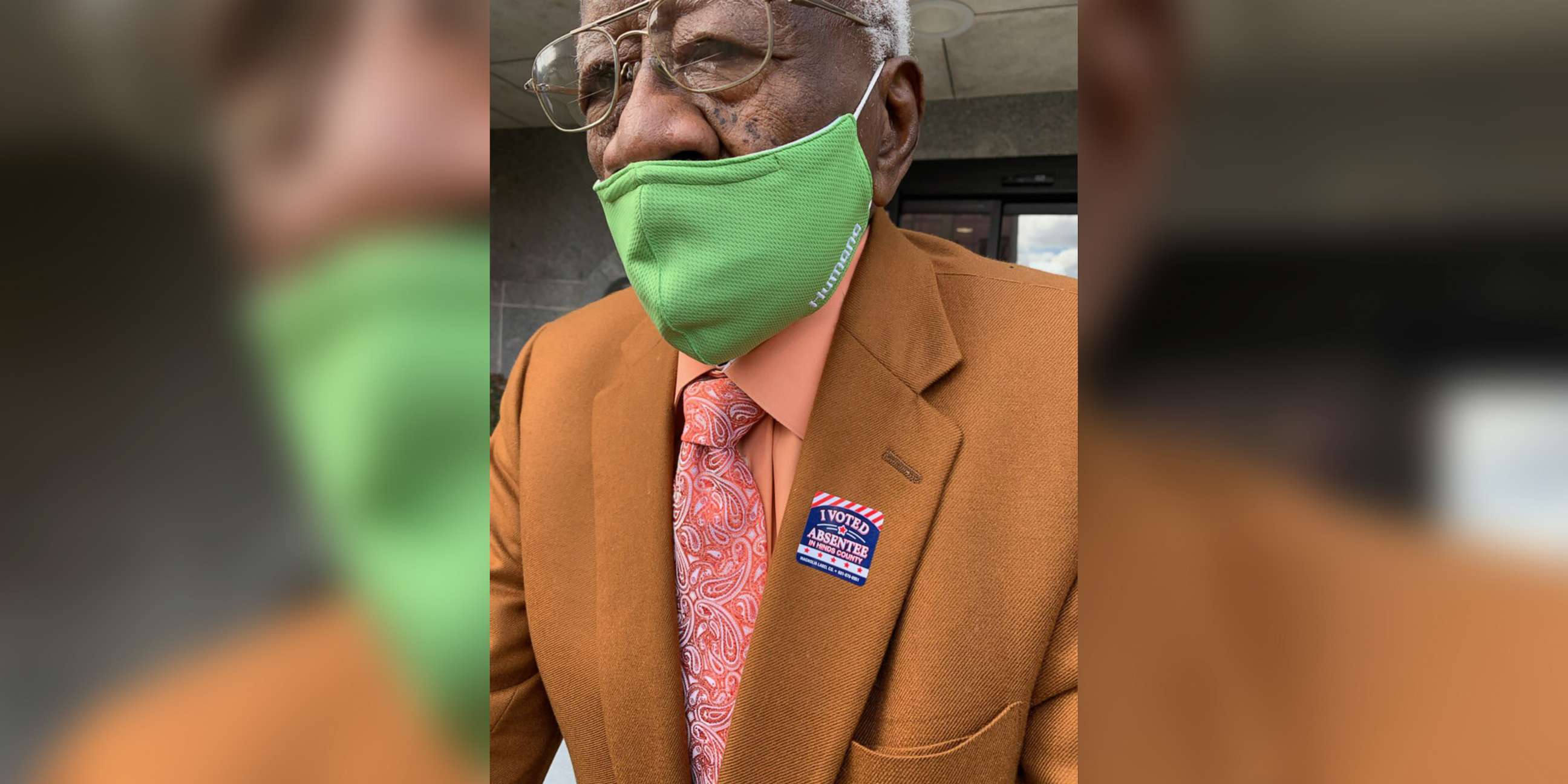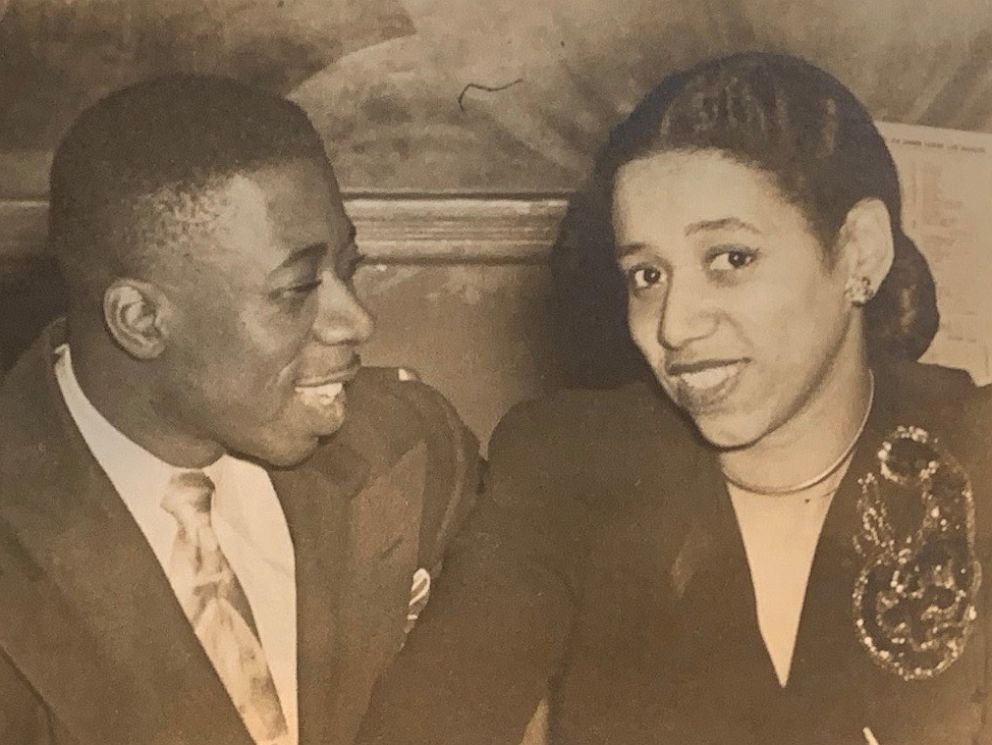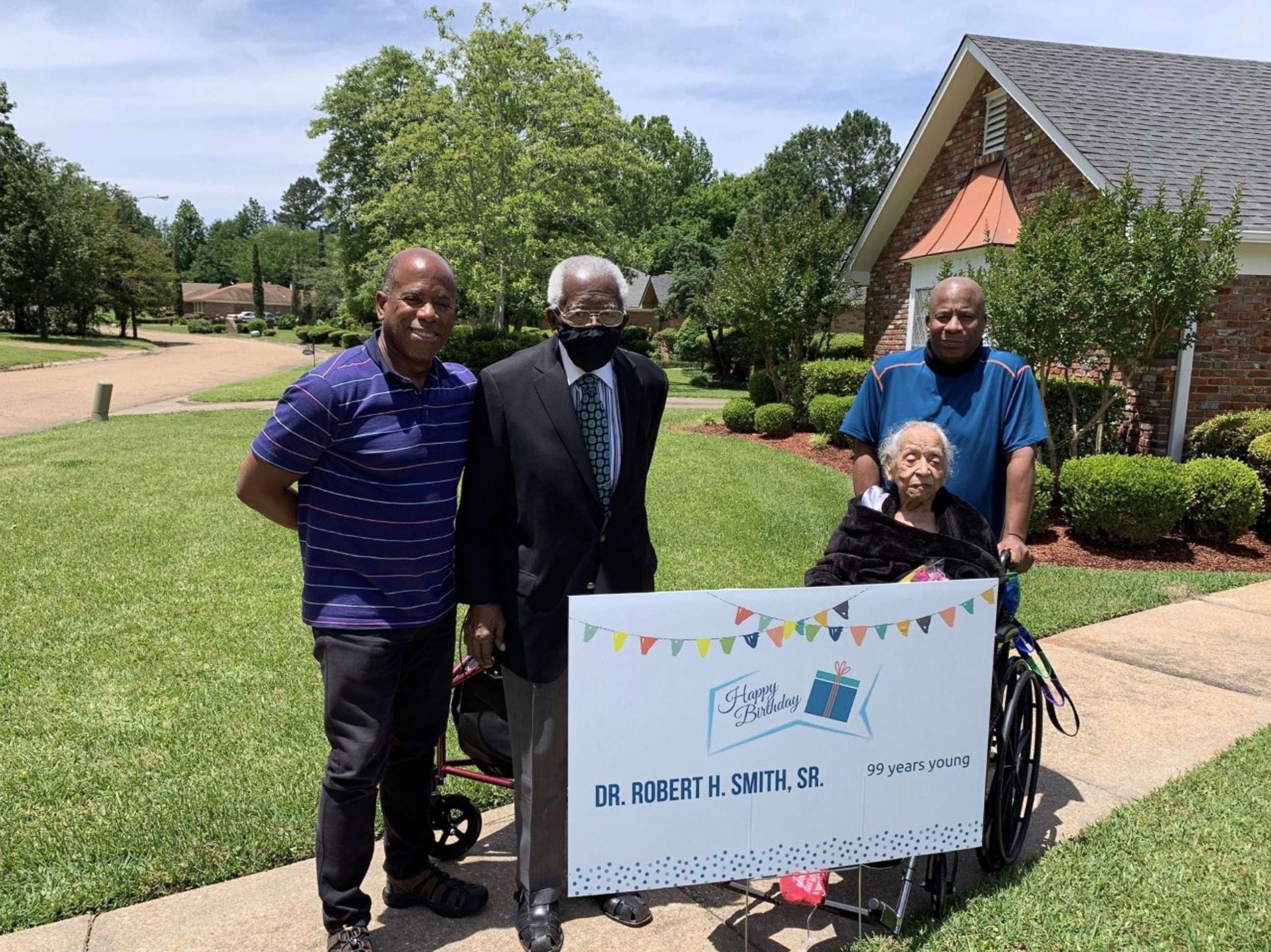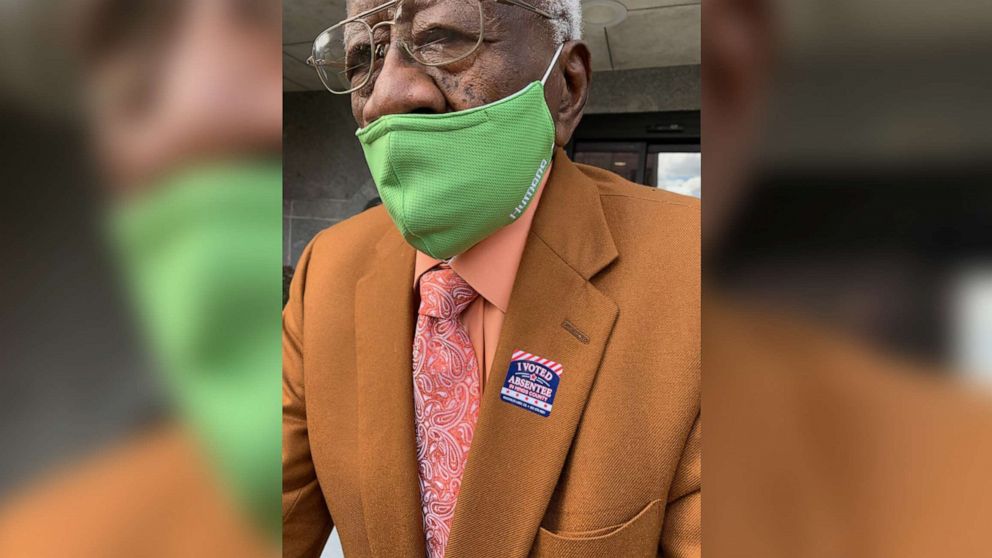99-year-old Mississippi man born on a plantation votes in election
A 99-year-old man who was born the son of a sharecropper on a plantation is making sure his voice is being heard in this year's election – and sending an important reminder of just how crucial it is to exercise your right to vote.
Dr. Robert H. Smith Sr., of Jackson, Mississippi, submitted an absentee ballot while wearing a face mask and proudly sporting his "I Voted" sticker.
"I remember when I couldn't vote," Smith told ABC News.
For Black Americans, the right to vote has been deeply complicated.
Although the U.S. adopted the 15th Amendment in 1870, which legally granted Black men the right to vote, the opportunity to exercise that right became a decades-long challenge, with some areas implementing specific requirements such as literacy tests and poll taxes.
For African American citizens who lived in southern states, that was especially true as many often struggled with intimidation and violence from white supremacist groups such as the Ku Klux Klan – an issue Smith says is still real in today's political climate.
It wasn't until 1965 that the Voting Rights Act was signed, by President Lyndon B. Johnson during the civil rights movement, becoming a landmark piece of federal legislation that prohibited racial discrimination on both the state and local level. In 2013, however, the Supreme Court invalidated a key provision of the act, making it much less powerful.

Smith lives in Hinds County, the most populous county in Mississippi, and said he stood in line for approximately 20 minutes alongside his son to submit his ballot in-person last month. He shared how proud the moment made him feel after overcoming a number of obstacles throughout his lifetime.
"Voting is an experience that every American citizen should have," he said, adding, "we the people decide who's going to be our leader."
He was born on the Burks Plantation near Rayville, Louisiana, on May 9, 1921. His father was a sharecropper on the plantation but left to become a Baptist preacher who ministered at several local cchurches in the region.
Part of Smith's remarkable journey includes being one of the first in his family to complete high school and college and earn a Ph.D.
Despite not finishing elementary school himself, Smith's father consistently instilled in his children that "the only way out is to stay in school" – a sentiment that would be passed along for generations.
Upon graduating from high school, Smith was drafted into the U.S. Army during World War II and was later promoted to the rank of chief warrant officer in the European Theater of Operations.

He went on to obtain a bachelor's degree at Southern University, master's degree from the University of Illinois at Urbana-Champaign, and Ph.D. from Florida State University.
During his time at the University of Illinois, Smith says African American students couldn't eat at certain eateries due to the color of their skin. Not only did he join the school's community relations committee to ensure all should be served everywhere, but he also joined sit-ins.
Seeing recent demonstrations across the country in protest against racial inequality makes him reminiscent of his time as a student activist. He believes the current push for justice is just a sign the work is far from over.
"I've been involved in this movement for the past 50 years ... but there's much more to be done," Smith told ABC News.
In 1943, during his first visit to New York City, he met a young nurse from the Harlem School of Nursing, Grayce Stewart, who would become his wife of 72 years.
Stewart was "the prettiest girl" he'd ever laid eyes on, he said, to this day.

Together, the couple has three children, Robert Jr., Rodney, and Rhonda – who took after her mother and became a registered nurse. They also have two grandchildren.
Upon completion of his studies, Smith fulfilled his passion for teaching as a professor of sociology at Florida A&M University, dean of liberal studies at Jackson State University and dean of freshman studies at Tougaloo College – all three of which are historically black colleges and universities.
Smith also became a Deacon Emeritus at New Hope Baptist Church Jackson, which he counts among his greatest achievements.
He only retired from teaching about a decade ago, saying he had a long career simply because he loved it.
"Get into a profession that you enjoy doing and you won't work a day in your life," Smith said.
While he anxiously awaits Election Day, he says ultimately his biggest hope is for a better future for his family.
"I just hope that things get better politically. I don't think we have to have the situation that we have today," Smith said.




